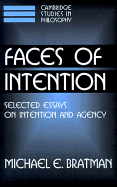Book contents
10 - Identification, Decision, and Treating as a Reason
Published online by Cambridge University Press: 18 December 2009
Summary
FRANKFURT'S CHALLENGE
In his 1991 presidential address to the American Philosophical Association, Harry Frankfurt describes the “notion of identification “ [as] fundamental to any philosophy of mind and of action.” This is a striking claim. Standard philosophies of action tend to be rather minimalist. Some are extremely minimalist and include only belief, desire, and action. Others introduce distinctive forms of valuation. Yet others insist further on the need to include, at a basic level, intentions and plans, and the decisions which are their normal source. Frank-furt's effort to focus our attention on “identification” poses a twofold challenge: We need to know what identification is, and we need to know if recognizing this phenomenon requires yet a further, fundamental addition to our model of our agency.
Frankfurt emphasizes that an agent may sometimes see her motivation as “external” even though it is in one straightforward sense hers. This may be the attitude a drug addict takes toward her overwhelming desire for the drug, or a person takes toward his “jealously spiteful desire to injure” an acquaintance, or someone takes toward a “spasm of emotion” that “just came over” him. Seeing one's motivation as external may frequently involve characteristic feelings of estrangement, though Frankfurt does not seem to see these as essential. In contrast, one may sometimes on reflection “identify” with one's motivation; one sees it as grounding action that is, in a sense that needs to be clarified, fully one's own.
- Type
- Chapter
- Information
- Faces of IntentionSelected Essays on Intention and Agency, pp. 185 - 206Publisher: Cambridge University PressPrint publication year: 1999
- 8
- Cited by



